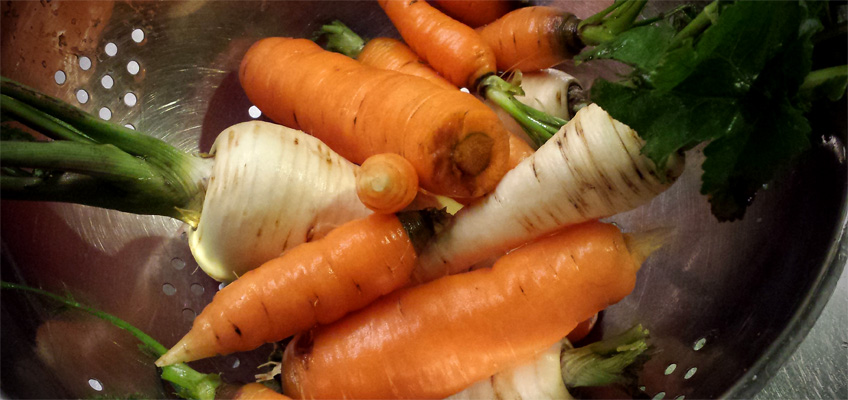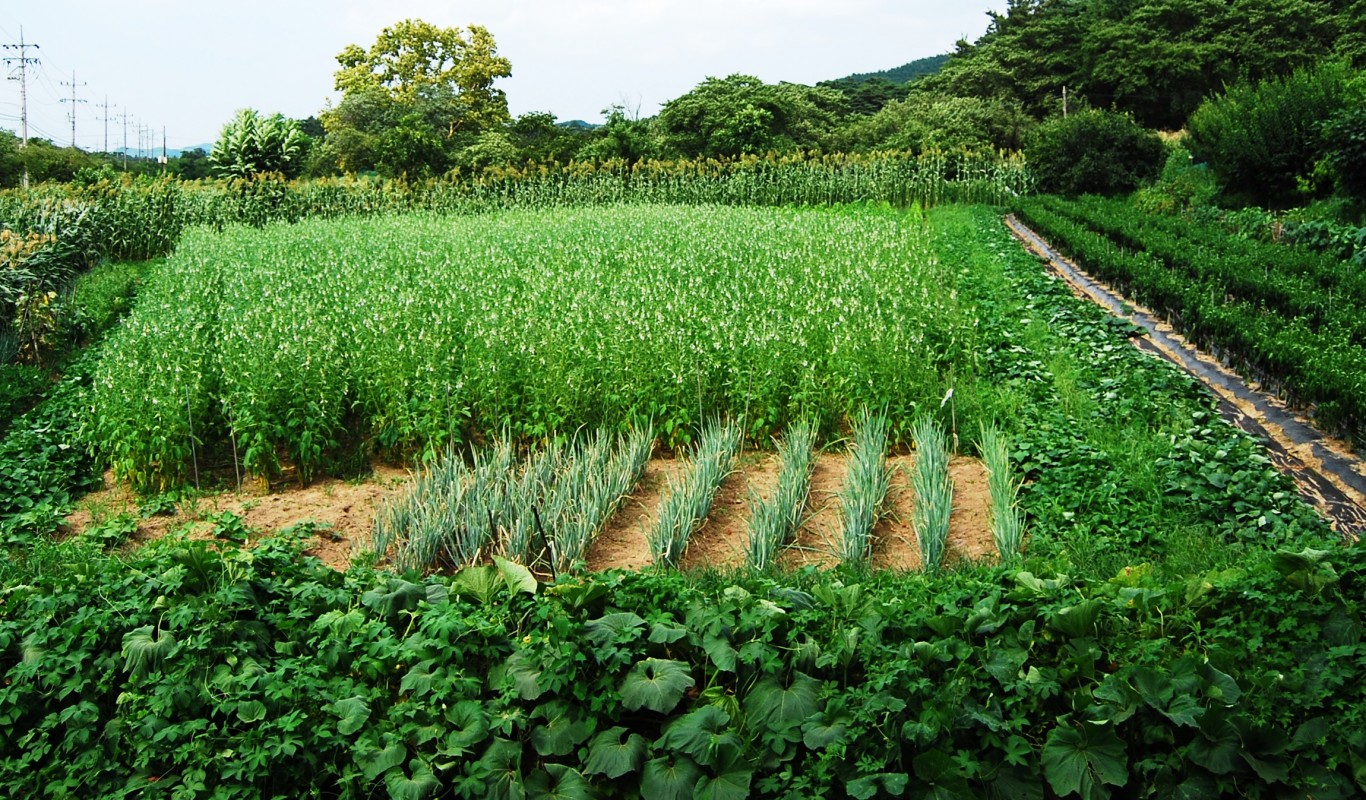QUALITY -
WHEN ORGANIC GETS GOING
It was to be
expected. The organic begins to run up against the cancer of fresh products:
the appearance. I told you about this a few months ago, explaining that this is
probably the first criterion of quality, since its influence is direct, both on
the purchase gesture and on the purchase price for the consumer, as well as on
the price the farmer will receive for his production.
Until
now, organic farming has escaped this problem which is generating an impressive
amount of food waste. The classification of organic products does not follow
the same requirements as conventional products.
In organic,
rubbing damages, a large part of deformations, even heterogeneities of caliber
in the same batch are tolerated. There is no first and second choice in
organic. Normalization has not yet stuck its nose there.
This
difference has long been a source of tension between organic and conventional
growers, since most of these aspect defects have nothing to do with the method
of production. They can be due to wind, hail, cold, pollination problems, bird
strikes, and a host of other causes that can't be chemically controlled.
In
short, this difference in criterion is purely political, intended to favor
organic farming compared to conventional agriculture.
Historically,
the difference in productivity between organic and conventional, evident in
most crops, although not systematic, was largely offset by these differences in
commercial criteria, allowing the organic to obtain a comparable quantity sold
per hectare, thanks to a lower percentage of waste.
However,
this commonly accepted rule, although without any justification in terms of
taste quality, is beginning to lose its lustre. The year 2017 is a black year
for many productions, mainly for serious commercial problems, great
difficulties to sell, and generally very low selling prices, often lower for
the farmer to his costs of production.
And what
happens when the market is in this situation?
It is
becoming more and more demanding on quality.
And now
organic agriculture is beginning to face one of the main difficulties of
conventional agriculture.
(Article
recently published in the digital version of a well-known French generalist
journal).
So, look at
the case of these small organic farmers, despairing of a situation, altogether
quite habitual, but to which they are not prepared:
"A couple of farmers are preparing to
let nearly three tons of zucchini rot, due to consumer demands.
Would a stain on a zucchini prevent
you from buying it? This is in any case the reason for the mess of a large part
of the production of a couple of organic farmers. Due to slight defects on
their vegetables, Caroline and Cyril Roux are forced to watch their hard work
rotting, due to consumer demands. "
Yes,
I understand their state of mind, it is hard to accept.
Do
you know, for example, that when I prepare my harvest forecasts, several months
or weeks before I start, for the orchards for which I have responsibility, I
introduce a value of 15% waste?
Yes, 15% of
fruits not marketed, thrown in the trash mainly because of aspect defects.
And still,
15% is not too bad. This year, because of the difficult trading conditions,
this percentage has risen to 20%, and last year, exceptionally difficult
climatic year, we have almost reached 25%.
Every week during the harvest, dozens of tons of peaches and nectarines await trucks for industrial uses, a modern and profitable form (except for the farmer) to avoid simple destruction. They will be processed into juice, puree or concentrate. The only other option is the garbage. These fruits do not correspond to the commercial standard, mainly for aesthetic reasons (epidermis defects).
In my
precocious, short cycle conditions, with specific varieties, which are
generally not very productive, but adapted to the local climate, this means
that for my peach or nectarine production, I know before starting that about
4,000 kilos of fruit per hectare will be trashed each year, and if I come
across a tough year for any reason, that figure can exceed 6,000 kilos.
As these
farmers say,
"These little green spots on
zucchini were caused by the high temperatures of June. However, they don't
alter the taste or quality of the vegetables. "Many want perfect
organic" »
This is an
inevitable evolution of the organic. This is one of the consequences of its
success, its popularization.
More organic
production, it's also the access to the organic of a wider, unprepared,
uninformed public, who buys organic just because he thinks it's better without
really thinking about the scope of this change.
As besides,
it's a constantly growing market, it's a huge source of wealth for many people
(see for example Biocoop or Kokopelli, unscrupulous businesses, fully
exploiting a juicy vein), all means are allowed to attract new consumers, and
disinformation is a great way to get there.
Many
consumers are converting to organic, frightened by the nonsense that are told
to them or by health scandals, for which there are only highlights on what
interests ...
Who knows,
for example, that among the batches of eggs contaminated with fipronil (a
current food scandal in Europe), there are also batches of eggs sold as
organic? This example comes from Belgium. http://www.lavenir.net/cnt/dmf20170810_01039399/j-ai-consomme-quatre-boites-d-oeufs-contamines-au-fipronil-verifiez-aussi-les-codes-hollandais.
Picture: https://img.over-blog-kiwi.com/1/63/57/44/20170813/ob_f746b0_capturer-oeufs-bio-fipronil.JPG
The big
capitalists of organic are succeeding their bet: people are worried about the
quality of their diet. For the planet, too, of course. But it's above all an
individual gesture.
And
people who convert to the consumption of organic products directly transpose
their habits and requirements of consumers of standardized conventional
products, on organic products.
The circle
is going to complete. Consumers will force organic production to increase
quality criteria, at least in terms of appearance.
An
ever-increasing share of organic production is sold in supermarkets, without
supervision or advice, and consumers buy at sight, so at appearance.
And what
makes one of the main attractions of organic farming, from the farmer's point
of view, the economic margin per hectare, is melting away.
Because an
organic grower produces less, but sells a greater part of his production, and
at a better average price ... so far.
It's
changing.
Will this
problem only be a bump in the organic road, the (too) rapid and (relatively)
out-of-control development of this mode of production? It is possible, in the
short term.
But
don't doubt it, sooner or later, we will get there.
And what
will happen when we get there?
What I
explained to you a few months ago about the appearance: an increasingly
important part of organic phytosanitary interventions will have a cosmetic
objective.
Products
will be organic, of course, but they will have much greater side effects.
For when a
farmer knows that at least 15% of his harvest will be unsaleable, he does
everything in his power to control everything he can control, in order to limit
aspect defects to the maximum of his possibilities, therefore attacks of
insects, bacteria, fungi (light damages are theoretically accepted in organic,
but not in conventional).
So
he will use an increasing amount of insecticides and fungicides, organic but
not free of undesired side-effects.
And the
respect for the environment, in all this?
It's a wish,
a willingness, or a requirement of people who have the means to demand it, or
the ignorance that does not allow them to know that these small defects of
epidermis don't affect the quality of the most of the products, neither organic
nor conventional.
And these
same people, who "want perfect organic", are also often the same who
are scandalized by food waste, or by negative effects of agriculture on the
environment.
Because
these requirements inevitably lead the farmer to implement agronomically
unnecessary but economically indispensable practices.
Individual
logic is often incompatible with community logic.
How to
resolve this?
Probably by
undistorted information, without ideology or commercial undertones, and by the
education of the consumer.
The
farmer can do some things, and in fact, blogs, objective (non-sensational)
agricultural information programs and open days on the farm are multiplying in
Western countries.
But
the substantive work is not within the reach of the farmer, it should rather be
the role of civil society, and therefore of public administration.
A man can
dream, can't he?
In France,
the "General States of Food" are currently held, a major consultation
at the national level, concerning all stakeholders in the sector. This is an
election promise of new President Macron.
It could
give birth to a mouse, or put up so many brakes and constraints that farmers
would become landscape gardeners.
However,
involved ministers agreed that "to
improve agricultural, environmental and social practices of producers, they
must first be adequately remunerated, in order to encourage investment”. http://campagnesetenvironnement.fr/etats-generaux-de-lalimentation-entre-enjeux-alimentaires-agricoles-et-environnementaux/
It should be
said that in France, one of the G8 countries (one of the most modern and
richest countries in the world), one farmer out of two earned less than 350 €
per month (around $ 400) in 2016. This sum does not say anything if it is not
related to the SMIC (interprofessional minimum wage) which was in 2016 of 1143
€ per month, all expenses deducted. In other words, one farmer out of two earns
three times less than his own employees, or that what the national authorities
consider today as the minimum to live decently in France!
And you
would these people to be preoccupied with things that are quite abstract after
all, when they struggle every day to make their businesses survive and to offer
their families acceptable living and education conditions?
Some found
in organic farming a dignified and elegant escape, economically interesting,
and intellectually and socially rewarding.
There
could be some disappointments ...







Aucun commentaire:
Enregistrer un commentaire